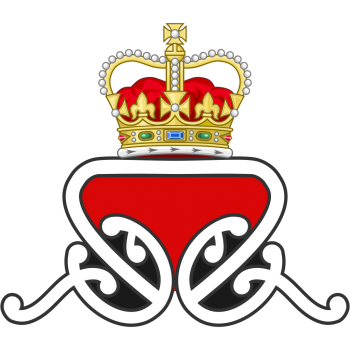New Zealand Herald Extraordinary: Difference between revisions
Jump to navigation
Jump to search
Knorrepoes (talk | contribs) m (Text replacement - "50px" to "50 px") |
Knorrepoes (talk | contribs) m (Text replacement - "↵{{media}}↵" to "") |
||
| Line 18: | Line 18: | ||
===Origin/meaning=== | ===Origin/meaning=== | ||
The Koru design is used to decorate the rafters of Māori meeting houses, where important ceremonies take place, and it is also found on a number of objects at these ceremonial gatherings. The loops and coils of the Koru also represent the complex Māori genealogical tree of the Whakapapa. Māori genealogy is based for the most part on oral evidence and tradition, and in art the Koru is used to represent this. | The Koru design is used to decorate the rafters of Māori meeting houses, where important ceremonies take place, and it is also found on a number of objects at these ceremonial gatherings. The loops and coils of the Koru also represent the complex Māori genealogical tree of the Whakapapa. Māori genealogy is based for the most part on oral evidence and tradition, and in art the Koru is used to represent this. | ||
[[Literature]]: | [[Literature]]: | ||
[[Category:Institutional heraldry of the United Kingdom]] | [[Category:Institutional heraldry of the United Kingdom]] | ||
Revision as of 10:04, 7 April 2023
| Heraldry of the World |
| British heraldry portal Civic heraldry of the United Kingdom |
|
NEW ZEALAND HERALD EXTRAORDINARY
Used by: New Zealand Herald Extraordinary
| (Badge) |
(Heraldic Banner) |
Official blazon
A complex Māori Koru coloured in the traditional manner proper ensigned by a representation of the Royal Crown also proper.
Origin/meaning
The Koru design is used to decorate the rafters of Māori meeting houses, where important ceremonies take place, and it is also found on a number of objects at these ceremonial gatherings. The loops and coils of the Koru also represent the complex Māori genealogical tree of the Whakapapa. Māori genealogy is based for the most part on oral evidence and tradition, and in art the Koru is used to represent this. Literature:


